East Tennessee State University

Founded: 1911
Address: 1276 Gilbreath Dr, Johnson City, TN - Tennessee, United States
Phone: +1 423 4391000
Address: 1276 Gilbreath Dr, Johnson City, TN - Tennessee, United States
Phone: +1 423 4391000
Here you find out East Tennessee State University complete information about fees, location, degree East Tennessee State University offers, number, website, and much more. East Tennessee State University is a leading university in Tennessee - United States.
You can also find out jobs at East Tennessee State University for students, teachers, and professors. We also update the database for an internship at East Tennessee State University for students.
The primary mission of the Quillen College of Medicine is to educate future physicians, especially those with an interest in primary care, to practice in underserved rural communities. In addition, the College is committed to excellence in biomedical research and is dedicated to the improvement of health care in Northeast Tennessee and the surrounding Appalachian Region.
The Quillen Colle...ge of Medicine endeavors to meet community and regional health needs by identification, creation, and execution of the necessary programs through utilization of its diverse resources. The college is a major health care provider for East Tennessee. In view of this responsibility, the college emphasizes primary care as the focus of medical practice and training programs. The primary care physician is defined as the physician of first and continuing contact, coordinating the entire care of the patient. Primary medical care is a function rather than a discipline. This care is provided by family physicians, general internists, general pediatricians, and obstetricians/gynecologists. In addition to meeting the clinical and service responsibilities, the college also supports a significant research endeavor.
The Quillen College of Medicine has an experienced and qualified faculty in the biological, behavioral, and clinical sciences. In addition to the full-time faculty, a number of practicing physicians in the community participate in the educational process as both part-time and volunteer faculty.
Students at Gatton work with faculty members to design experiments and test hypotheses, making meaningful discoveries in the field of health care.Gatton offers Postgraduate Training Programs in Community Practice, Ambulatory Care, and Internal Medicine Residencies, as well as 2-3 year Fellowships in practice-based research and prescription drug abuse.
East Tennessee State University’s Quillen College of Medicine serves along with the College of Nursing, College of Clinical and Rehabilitative Health Sciences, Gatton College of Pharmacy, and College of Public Health as the region"s health sciences center. In fact only 2 universities in America can boast of the same mix of health care programs on the same campus.
In just three decades, the College has developed into one of the nation’s leading schools for rural and primary care medicine, an honor consistently recognized by U.S. News & World Report.
Securing legislative approval of the school did not come without challenge, without controversy, or without a fight. In fact, the battle to bring a medical school to East Tennessee is regarded by some as one of the most dramatic chapters in the history of Tennessee politics.
It was in the late 1960s, on the ETSU campus, when one of the first meetings was held to discuss the idea of establishing a medical school here. In the fall of 1961 Burgin E. Dossett, President of East Tennessee State College, began subtle lobbying for a medical school. The drive for a medical school gained additional momentum in 1963 when East Tennessee State College became a university. Three years later in March 1966, the first public announcement was made revealing the plans for obtaining a medical school for Northeast East Tennessee.
In 1968, Dr. D.P. Culp was appointed president of ETSU, and his stated major goal was to establish a medical school. Understanding that the help of Congressman Jimmy Quillen would be vital if the dream for a medical school were to be realized, Dr. Culp and numerous others solicited and secured his support. Joining Congressman Quillen in the fight for the ETSU medical school were State Representative P.L. Robinson, ETSU Dean of Health John Lamb, Johnson City attorney Mark Hicks, then Speaker of the House Ned McWherter, newspaper publisher Carl Jones, State Senator Marshall Nave, State Representative Gwen Fleming, ETSU President D.P. Culp, Johnson City Physician Dr. Charles Ed Allen, and State Representative Bob Good.
A 1971 study by THEC concluded that it was not cost effective to have a medical school in Northeast East Tennessee. This study was supported by the Board of Regents. Soon after this disappointment, a new avenue for the Tri Cities contingent opened.
Officials hoped to win approval for the College of Medicine through new federal legislation that was being introduced. In April 1971, U.S. Congressman Olin Teague of Texas introduced a bill to create five medical schools in conjunction with established VA hospitals or affiliated with medical colleges. Senator Alan Cranston of California introduced a companion bill. Known as the Teague-Cranston Act, the proposal called for the creation of five new medical schools in five states to meet the needs of the medically underserved areas of the country. Congressman Quillen introduced a crucial amendment to the Teague Bill, one requiring that any university to be considered for acceptance into this pilot program must be on government property contiguous and adjacent to a VA hospital. The bill passed both houses without a dissenting vote in October of 1972. President Nixon signed the Teague-Cranston Act on October 24, 1972 at 12:30 p.m.
In Tennessee, Senator Nave called for consideration of the medical school legislation in the Upper House on February 14, 1974 and the Upper House approved it. Four days later, the bill failed to get a majority vote in the Lower House. Representatives Robinson and Good called in their political chips, and on February 28, the measure was passed. The bill was presented to Governor Dunn, and as expected, he vetoed it. Senator Nave and Representative Robinson immediately made motions in their respective houses to override the Governor’s veto. Once again, both sides called in favors and made promises of future support in an effort to sway the necessary votes their way.
The Senate overrode with a comfortable 18-13 vote on March 6, and the House needed only to follow suit to enact the law that would make a free-standing medical school at ETSU a reality. Representative Robinson needed to collect at least 50 votes to supersede Governor Dunn’s veto. On March 12, 1974 the state Legislature overrode the Governor’s veto by a vote of 51-37, with the decisive vote being cast by Speaker of the House Ned McWherter.
Victory for the region, higher education, and improved health care had been achieved.On August 21, 1978, the first class of 24 students arrived on campus.Four years later, in May of 1982, those 24 students walked across the stage to be hooded as M.D.s and graduate from the College of Medicine. In attendance as commencement speaker was The Honorable Ned McWherter, now Governor of Tennessee.
Founded in 1974 on a mission to train primary care physicians and to increase the number of doctors in rural communities, the Quillen College of Medicine, with more than 2000 graduates, has remained true to its original mission. Thirty-five years later, Fitzhugh Mullan published his innovative “social mission” research in the Annals of Internal Medicine, demonstrating that Quillen is ranked first in the nation for primary care graduates.
Approximately 65 percent of our students and 51 percent of our residency graduates are practicing in primary care.And, 22 percent are serving in rural, traditionally underserved, areas. That’s more than double the national average.
Many students tell us they chose the Quillen College of Medicine because of its small class size. Only 72 students are admitted each year, which is less than half the size of some medical school classes. Most of our students come from Tennessee, and they tend to stay close to home when they graduate, with more than half of our medical school and residency graduates now practicing in the Volunteer State. Our current students range in age from 21 to 53. And even though the number of men in medical school is higher than women across the nation, here at the Quillen College of Medicine, we actually have more women enrolled.
Research is at the core of our mission. We’ve been fortunate to recruit several nationally and internationally known scientists in the areas of cardiovascular disease, oncology, neuro-cardiology, infectious diseases, and primary care. The presence of the Quillen College of Medicine has led to dramatic changes and advances in health care in the Tri-Cities Tennessee/Virginia. Our clinical practice, ETSU Physicians and Associates, offers more than 40 specialties and sub-specialties in medicine, surgery, women’s health, pediatrics, and psychiatry. Many of those specialized services are not available anywhere else in the region.
As a major academic health center, our goal is to bring new discoveries in research immediately to the patient’s bedside.We hold affiliations and partnerships with some of the world’s most prestigious research institutions, including St. Jude Children’s Research Hospital and the Vanderbilt Ingram Cancer Center Network, and we have been designated as an HIV/AIDS Center of Excellence for Tennessee.
The changes and innovations effected by the James H. Quillen College of Medicine have encompassed so much more than just the health care professions. It is unlikely that the individuals who fought so hard to establish this college could have foreseen the level of growth and expansion of the Tri-Cities region that has taken place. While the original dream may have been achieved, the Quillen College of Medicine still promotes a vision for the Tri-Cities that will continue to lead and guide this region far into the future.
Many scholarship programs are available to assist students in various fields of study. Scholarships are intended to assist students in funding the direct costs of their higher education. Full scholarship support at ETSU is defined as those scholarships, or combinations of scholarships, which provide the current costs of education including tuition and standard fees, a semi-private room in a residence hall and meal plan (i.e., the Resident Advantage Plan), and $1000 per semester for books and other incidental fees.
You can also find out jobs at East Tennessee State University for students, teachers, and professors. We also update the database for an internship at East Tennessee State University for students.
The primary mission of the Quillen College of Medicine is to educate future physicians, especially those with an interest in primary care, to practice in underserved rural communities. In addition, the College is committed to excellence in biomedical research and is dedicated to the improvement of health care in Northeast Tennessee and the surrounding Appalachian Region.
The Quillen Colle...ge of Medicine endeavors to meet community and regional health needs by identification, creation, and execution of the necessary programs through utilization of its diverse resources. The college is a major health care provider for East Tennessee. In view of this responsibility, the college emphasizes primary care as the focus of medical practice and training programs. The primary care physician is defined as the physician of first and continuing contact, coordinating the entire care of the patient. Primary medical care is a function rather than a discipline. This care is provided by family physicians, general internists, general pediatricians, and obstetricians/gynecologists. In addition to meeting the clinical and service responsibilities, the college also supports a significant research endeavor.
The Quillen College of Medicine has an experienced and qualified faculty in the biological, behavioral, and clinical sciences. In addition to the full-time faculty, a number of practicing physicians in the community participate in the educational process as both part-time and volunteer faculty.
Students at Gatton work with faculty members to design experiments and test hypotheses, making meaningful discoveries in the field of health care.Gatton offers Postgraduate Training Programs in Community Practice, Ambulatory Care, and Internal Medicine Residencies, as well as 2-3 year Fellowships in practice-based research and prescription drug abuse.
East Tennessee State University’s Quillen College of Medicine serves along with the College of Nursing, College of Clinical and Rehabilitative Health Sciences, Gatton College of Pharmacy, and College of Public Health as the region"s health sciences center. In fact only 2 universities in America can boast of the same mix of health care programs on the same campus.
In just three decades, the College has developed into one of the nation’s leading schools for rural and primary care medicine, an honor consistently recognized by U.S. News & World Report.
Securing legislative approval of the school did not come without challenge, without controversy, or without a fight. In fact, the battle to bring a medical school to East Tennessee is regarded by some as one of the most dramatic chapters in the history of Tennessee politics.
It was in the late 1960s, on the ETSU campus, when one of the first meetings was held to discuss the idea of establishing a medical school here. In the fall of 1961 Burgin E. Dossett, President of East Tennessee State College, began subtle lobbying for a medical school. The drive for a medical school gained additional momentum in 1963 when East Tennessee State College became a university. Three years later in March 1966, the first public announcement was made revealing the plans for obtaining a medical school for Northeast East Tennessee.
In 1968, Dr. D.P. Culp was appointed president of ETSU, and his stated major goal was to establish a medical school. Understanding that the help of Congressman Jimmy Quillen would be vital if the dream for a medical school were to be realized, Dr. Culp and numerous others solicited and secured his support. Joining Congressman Quillen in the fight for the ETSU medical school were State Representative P.L. Robinson, ETSU Dean of Health John Lamb, Johnson City attorney Mark Hicks, then Speaker of the House Ned McWherter, newspaper publisher Carl Jones, State Senator Marshall Nave, State Representative Gwen Fleming, ETSU President D.P. Culp, Johnson City Physician Dr. Charles Ed Allen, and State Representative Bob Good.
A 1971 study by THEC concluded that it was not cost effective to have a medical school in Northeast East Tennessee. This study was supported by the Board of Regents. Soon after this disappointment, a new avenue for the Tri Cities contingent opened.
Officials hoped to win approval for the College of Medicine through new federal legislation that was being introduced. In April 1971, U.S. Congressman Olin Teague of Texas introduced a bill to create five medical schools in conjunction with established VA hospitals or affiliated with medical colleges. Senator Alan Cranston of California introduced a companion bill. Known as the Teague-Cranston Act, the proposal called for the creation of five new medical schools in five states to meet the needs of the medically underserved areas of the country. Congressman Quillen introduced a crucial amendment to the Teague Bill, one requiring that any university to be considered for acceptance into this pilot program must be on government property contiguous and adjacent to a VA hospital. The bill passed both houses without a dissenting vote in October of 1972. President Nixon signed the Teague-Cranston Act on October 24, 1972 at 12:30 p.m.
In Tennessee, Senator Nave called for consideration of the medical school legislation in the Upper House on February 14, 1974 and the Upper House approved it. Four days later, the bill failed to get a majority vote in the Lower House. Representatives Robinson and Good called in their political chips, and on February 28, the measure was passed. The bill was presented to Governor Dunn, and as expected, he vetoed it. Senator Nave and Representative Robinson immediately made motions in their respective houses to override the Governor’s veto. Once again, both sides called in favors and made promises of future support in an effort to sway the necessary votes their way.
The Senate overrode with a comfortable 18-13 vote on March 6, and the House needed only to follow suit to enact the law that would make a free-standing medical school at ETSU a reality. Representative Robinson needed to collect at least 50 votes to supersede Governor Dunn’s veto. On March 12, 1974 the state Legislature overrode the Governor’s veto by a vote of 51-37, with the decisive vote being cast by Speaker of the House Ned McWherter.
Victory for the region, higher education, and improved health care had been achieved.On August 21, 1978, the first class of 24 students arrived on campus.Four years later, in May of 1982, those 24 students walked across the stage to be hooded as M.D.s and graduate from the College of Medicine. In attendance as commencement speaker was The Honorable Ned McWherter, now Governor of Tennessee.
Founded in 1974 on a mission to train primary care physicians and to increase the number of doctors in rural communities, the Quillen College of Medicine, with more than 2000 graduates, has remained true to its original mission. Thirty-five years later, Fitzhugh Mullan published his innovative “social mission” research in the Annals of Internal Medicine, demonstrating that Quillen is ranked first in the nation for primary care graduates.
Approximately 65 percent of our students and 51 percent of our residency graduates are practicing in primary care.And, 22 percent are serving in rural, traditionally underserved, areas. That’s more than double the national average.
Many students tell us they chose the Quillen College of Medicine because of its small class size. Only 72 students are admitted each year, which is less than half the size of some medical school classes. Most of our students come from Tennessee, and they tend to stay close to home when they graduate, with more than half of our medical school and residency graduates now practicing in the Volunteer State. Our current students range in age from 21 to 53. And even though the number of men in medical school is higher than women across the nation, here at the Quillen College of Medicine, we actually have more women enrolled.
Research is at the core of our mission. We’ve been fortunate to recruit several nationally and internationally known scientists in the areas of cardiovascular disease, oncology, neuro-cardiology, infectious diseases, and primary care. The presence of the Quillen College of Medicine has led to dramatic changes and advances in health care in the Tri-Cities Tennessee/Virginia. Our clinical practice, ETSU Physicians and Associates, offers more than 40 specialties and sub-specialties in medicine, surgery, women’s health, pediatrics, and psychiatry. Many of those specialized services are not available anywhere else in the region.
As a major academic health center, our goal is to bring new discoveries in research immediately to the patient’s bedside.We hold affiliations and partnerships with some of the world’s most prestigious research institutions, including St. Jude Children’s Research Hospital and the Vanderbilt Ingram Cancer Center Network, and we have been designated as an HIV/AIDS Center of Excellence for Tennessee.
The changes and innovations effected by the James H. Quillen College of Medicine have encompassed so much more than just the health care professions. It is unlikely that the individuals who fought so hard to establish this college could have foreseen the level of growth and expansion of the Tri-Cities region that has taken place. While the original dream may have been achieved, the Quillen College of Medicine still promotes a vision for the Tri-Cities that will continue to lead and guide this region far into the future.
Many scholarship programs are available to assist students in various fields of study. Scholarships are intended to assist students in funding the direct costs of their higher education. Full scholarship support at ETSU is defined as those scholarships, or combinations of scholarships, which provide the current costs of education including tuition and standard fees, a semi-private room in a residence hall and meal plan (i.e., the Resident Advantage Plan), and $1000 per semester for books and other incidental fees.
Read More
Details:
LeaderShip: President: Dr. Brian Noland
Fees: USD 1,710 - 12,810
Time:
Phone Number: +1 423 4391000
City: Tennessee
Fees: USD 1,710 - 12,810
Time:
Phone Number: +1 423 4391000
City: Tennessee
Timing:
Country: United States
Staff:
Website: http://www.etsu.edu
Country: United States
Staff:
Website: http://www.etsu.edu
Subjects:
Jobs in East Tennessee State University
Currently, there is no job opening in East Tennessee State University as per our database.

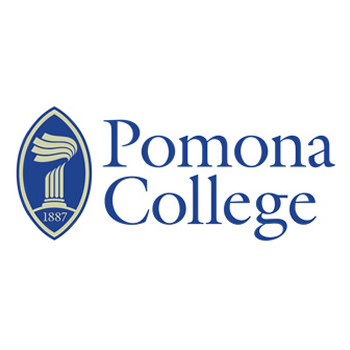
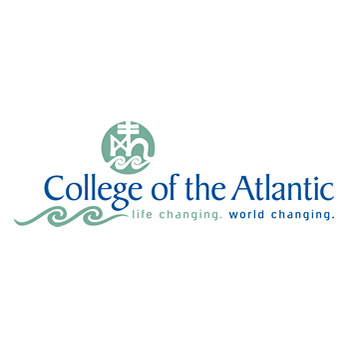
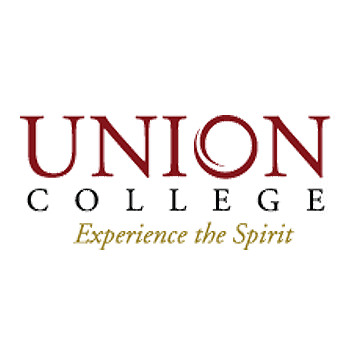
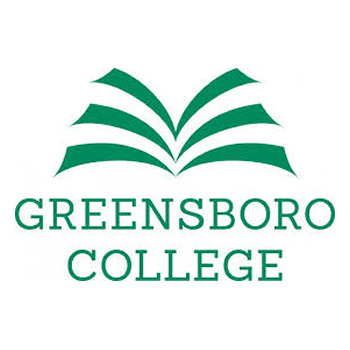
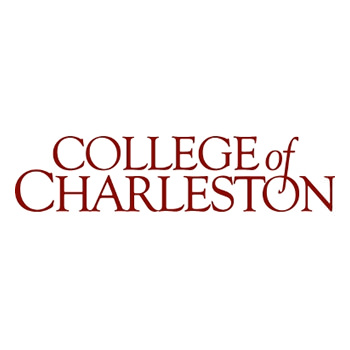
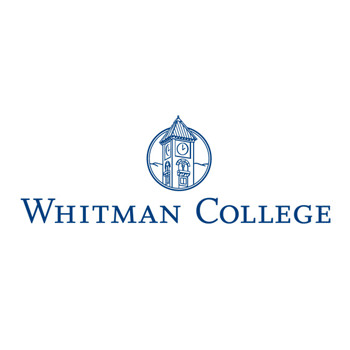

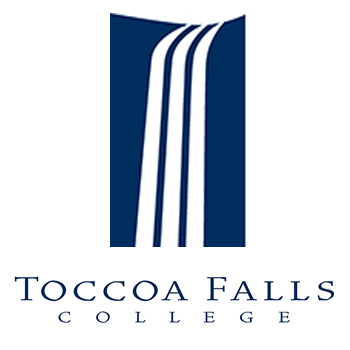










Leave a Reply